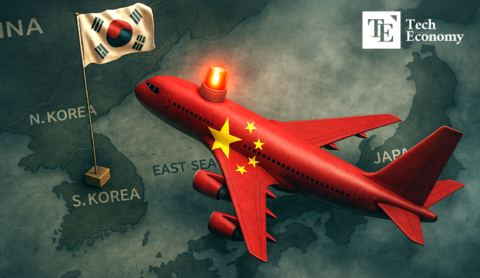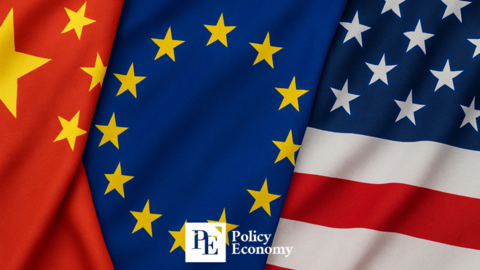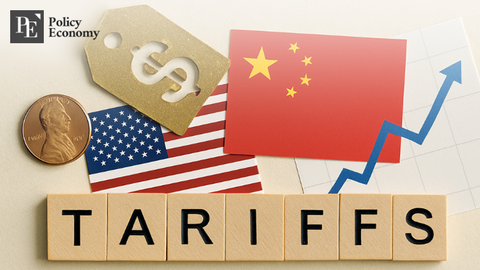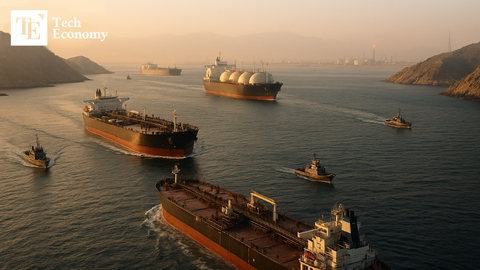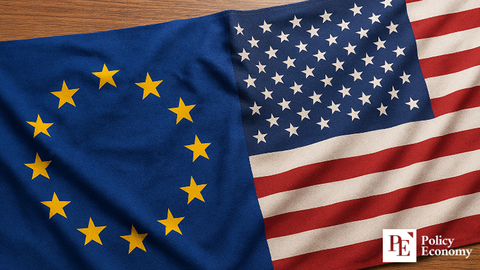Trump says he will announce raft of new trade tariffs
Input
Changed
President Trump has announced a major policy shift, unveiling plans to impose 25% tariffs on all steel and aluminum imports into the U.S. This series of trade measures would significantly affect global markets, particularly targeting steel and aluminum imports. He revealed plans to impose a 25% tariff on all steel and aluminum entering the U.S., with the most significant impact on its largest trading partners, including Canada and Mexico. Trump also signaled future actions involving reciprocal tariffs, meaning countries that impose tariffs on U.S. products could face U.S. tariffs matching their own rates. Although he did not specify which countries would be affected, the European Union and other major trading partners, like Australia, voiced concerns.This decision aligns with his broader trade agenda, which aims to prioritize U.S. manufacturing, strengthen the economy, and address what he sees as unfair trade practices. Speaking from Air Force One, Trump emphasized that these tariffs would target all nations, signaling the U.S. will retaliate against countries that impose tariffs on American goods. This is part of Trump's "reciprocal tariffs" policy, where the U.S. will charge back any country imposing duties on U.S. products.
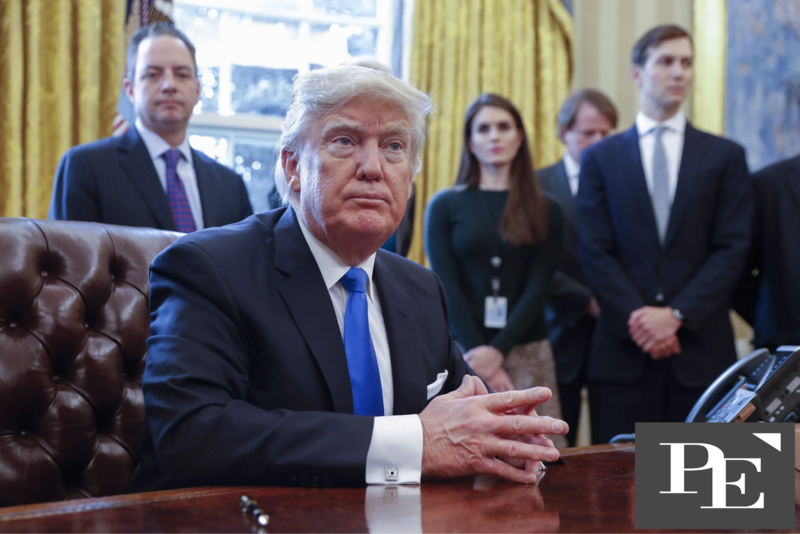
Speaking aboard Air Force One en route to New Orleans for the 2025 Super Bowl, he also revealed plans to introduce "reciprocal tariffs" on Tuesday or Wednesday, which will take effect immediately. This means the U.S. will impose tariffs on goods from countries that have imposed duties on U.S. products. Trump stated, "If they charge us, we charge them … every country," and emphasized that the U.S. would no longer accept unfair trade practices, such as paying 130% in tariffs while other nations face no tariffs.
The European Commission stated that it had not received formal notification of the tariffs, but French foreign minister Jean-Noel Barrot vowed that the EU would respond in kind, saying there would be no hesitation in defending European interests. The European Union has indicated it will respond strongly if these tariffs are enacted, with French foreign minister Jean-Noel Barrot expressing that the EU will "replicate" any new tariffs. Germany, too, warned of the negative consequences of prolonged tariff conflicts, with Robert Habeck asserting that they would unite in defending European interests. The EU has long been critical of Trump's trade policies, and its response suggests a continued commitment to challenging tariffs they deem unjust. Germany echoed this stance, with Robert Habeck asserting that Europe would unite in its response, noting that prolonged tariff conflicts ultimately result in losses for all parties involved. During his first term, Trump imposed 25% tariffs on steel and 10% on aluminum, later granting several trading partners exemptions. Earlier this month, he announced new tariffs targeting the U.S.'s closest trading partners—Mexico, Canada, and China. Last week, he agreed to delay the 25% tariffs on imports from Mexico and Canada for 30 days, along with additional tariffs on Canadian oil, natural gas, and electricity. Trump, a strong advocate of tariffs, views them as crucial for gaining cooperation from countries to address illegal immigration and fentanyl smuggling. Additionally, he believes tariffs will help boost U.S. manufacturing and generate revenue for the federal government.
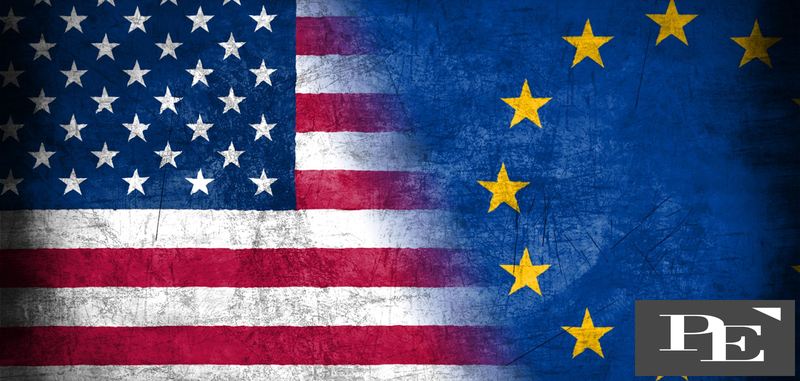
The European Union, in particular, argued that there was no justification for the proposed tariffs and promised to protect European businesses and consumers. Canada, a major supplier of steel and aluminum to the U.S., was expected to seek an exemption, as it had during Trump’s first term. The tariffs, which are part of Trump's broader economic strategy to boost U.S. industry and jobs, have already caused market volatility, with shares of steel and automotive companies, particularly from South Korea, falling sharply.
As part of his trade policy, Trump has threatened additional duties on imports from China, leading to retaliatory tariffs by Beijing on U.S. goods such as coal, oil, and agricultural machinery. These tensions are further complicated by the U.S.'s ongoing trade dispute with the European Union over auto tariffs, where Trump has previously suggested that the UK could avoid new levies. His broader plan to implement reciprocal tariffs is designed to ensure fairness, he argued, by levying equivalent tariffs on countries that charge the U.S. higher import duties.
The new tariffs build on Trump's first term when he implemented similar measures targeting steel and aluminum imports, although some trading partners were granted exemptions later on. More recently, Trump has expanded his tariff strategy to include imports from Mexico, Canada, and China. He has previously delayed some tariffs on Canadian and Mexican goods, citing security concerns and negotiations around border security, such as preventing illegal immigration and drug smuggling.
In response to Trump's tariffs, China imposed its own retaliatory measures, including new tariffs and an antitrust investigation into Google. China has been careful in its retaliatory actions, opting for measured responses that target specific U.S. industries while avoiding drastic actions that could harm its own economy. Meanwhile, global markets have been reacting to the escalating trade tensions, with commodities like gold hitting record highs.
Furthermore, Trump’s remarks about the Gulf of Mexico—renaming it “Gulf of America”—added to the international controversy. Critics, including the Mexican government, argue that the U.S. has no right to alter the name under international law. Additionally, Trump’s comments about potentially acquiring Canadian and Palestinian territories sparked further diplomatic fallout, illustrating his tendency to blur the lines between policy, rhetoric, and provocation.
The U.S. tariffs have been criticized for raising costs for U.S. industries that rely on imported steel and aluminum, like automotive manufacturers and beverage producers, which are expected to pass these costs onto consumers. Despite this, Trump remains firm in his belief that these tariffs are essential for the U.S. to protect its national security interests and economic competitiveness.
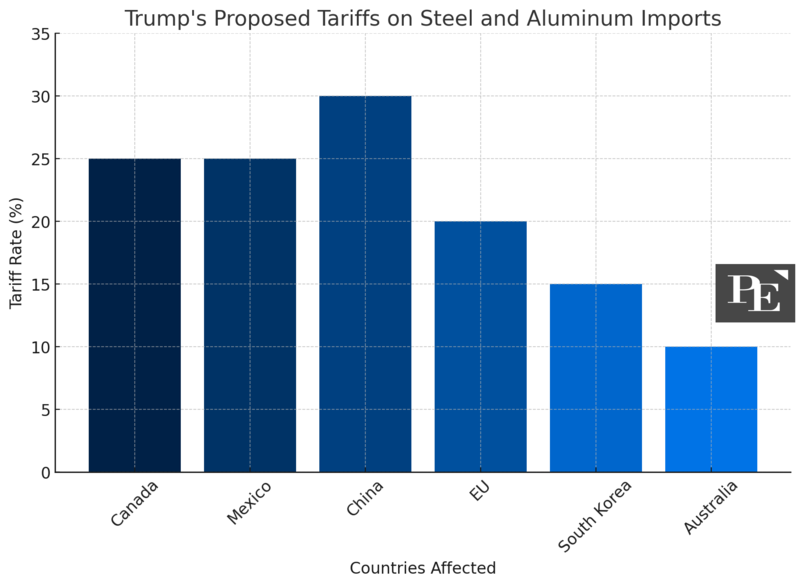
Overall, Trump’s trade measures are part of a larger economic agenda aimed at reshaping global trade relationships, but they have provoked significant backlash from key allies, while also contributing to global market instability and fears of an escalating trade war.
Tariffs are central to Trump's economic vision, as he believes they will foster domestic industry growth, create jobs, and generate government revenue. Trump has regularly stated that these tariffs are necessary tools to secure better trade deals and strengthen U.S. interests on the global stage. However, critics argue that these tariffs could lead to trade wars, harming industries that rely on international supply chains, as well as U.S. consumers who may face higher prices.
This move also comes amid growing tensions with major trade partners, particularly China, which has already imposed its own tariffs on U.S. goods, contributing to an ongoing trade war. As Trump's tariffs escalate, the situation has prompted concerns about global economic stability, with the potential for further retaliatory actions from affected countries. The U.S. government is navigating a complex global trade environment where these tariffs could either help reinforce its goals or lead to significant economic backlash.

